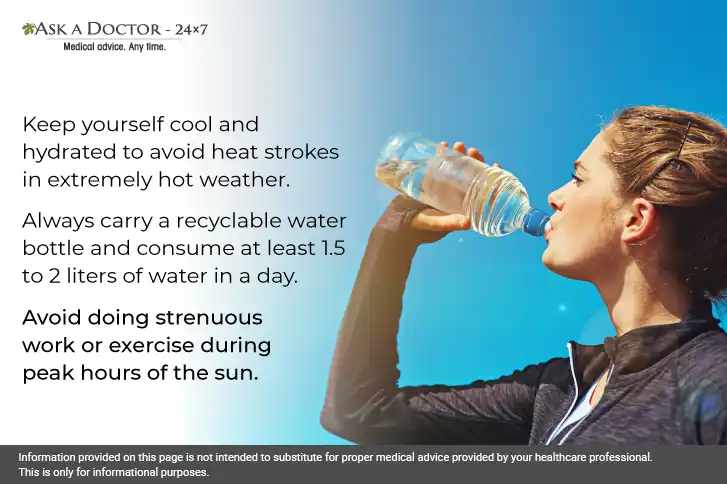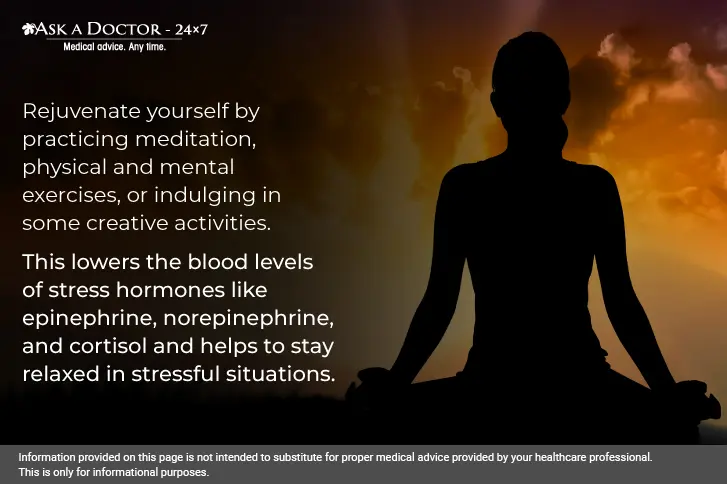7 Harmful Effects Of Climatic Change And How To Avoid The Consequences
Technological advancement in the last few decades has gifted us with a variety of manual or automatic gadgets thus making our lives super easy. Whether it is about traveling or business, agriculture or industries, education or communication, or any other field, technology increases efficiency and productivity. But as it says, ‘Nothing in this world, worth having comes easy’, rather it takes a lot of investment, and sacrifice to achieve. Humans, to procure the benefits of technology, have probably sacrificed climatic perseverance. We are losing our climatic stability while progressing in technology. Unfortunately, nature is reciprocating against indecent gestures of humans by bringing adverse effects on their health.
In this blog, let’s talk about the 7 harmful effects of climatic changes on human health and a few preventive steps to avoid them.
1. Enhanced Greenhouse Effect

Earth has a blanket of gases that keeps it insulated. This is a natural phenomenon known as the ‘greenhouse effect’ that maintains an optimal temperature for life on Earth. However, the enhanced greenhouse effect due to over emission of greenhouse gases (GHGs) into the air is leading to global warming. Consequently, summers are getting hotter, and winters are becoming warmer with an overall increase in the earth’s average temperature. Continuous rises in regular temperature impact humans by causing heat stroke or heat exhaustion and even death. Moreover, this causes the glaciers to melt increasing the chances of floods in low-lying areas.
Tips to prevent the over emission of greenhouse gases:
- Reduce the emission of carbon dioxide and other GHGs by using efficient energy sources.
- Maintain your vehicles regularly to get cleaner emissions.
- Adopt better transport choices.
- Avoid single-use plastics as both the production and disposal of plastics emit GHGs.
2. Spread of Infectious Diseases
Contracting winters and expanding summers help microbes and insects widen their habitats, lengthen their reproductive periods, and dilate the spread of diseases. Scientists from CDC’s National Center for Emerging and Zoonotic Infectious Diseases (NCEZID) predict that climatic change will lead to devastating growth of algae or cyanobacteria in lakes, rivers, and oceans, producing algal blooms. These toxic blooms affect fresh or marine life, livestock, pets, and humans.
Tips to prevent the growth of disease spreading microbes and insects:
- Keep your surroundings clean to reduce the chances of getting infections.
- Avoid water logging.
- Avoid throwing trash in open grounds or open waters.
- Get adequate sewage facilities
- Governments often take steps to educate people on good hygiene practices by bringing some preventive laws. Follow these practices on a personal level.
- Avoid overuse of antibiotics.
3. Malnutrition and Dehydration
Climate-driven global warming causes the glaciers at high altitudes to melt down allowing the water to enter into low-lying areas. This creates the risk of floods or drought. In both conditions, sufficient fresh water and food may not remain available to support lives. Cost and demand play an important role in deciding the fate of poor people who suffer from water scarcity and food deprivation. Health issues like low BMI, diarrhea, and poor bone health become prevalent in the affected people.
Tips to prevent the risk of floods or drought:
- Plant more trees as they absorb the extra amount of CO2 from the air cutting down the effect of global warming.
- Expand green strips to maintain the water cycle.
- Make less use of artificial lights and electrical devices to avoid excess heat dissipation.
- Use water efficiently.
- Harvest natural resources like solar energy or rainwater.
- Support disaster relief organizations.
4. Mental Health and Sleep Disorders

Researchers propose that changing weather patterns may also affect the sleeping rhythm in humans. Hot and humid temperatures may interfere with sound sleep. Lack of proper sleep is the root cause of many health issues like stomach ailments or immunity disorders, mental issues such as anxiety or depression in adults, cognitive impairment in children, etc. Besides the economic burden during adverse climatic crises such as famines, floods, or pandemics may lead to stress, eco-anxiety, or post-traumatic mental disorders.
Tips prevent the lifestyle-related mental health and sleep disorder:
- Increase your awareness of health risks associated with climatic or weather changes.
- Although natural disasters cannot be avoided completely, try to stay cautious about upcoming weather conditions.
- Keep your emergency supply kits ready, especially if you are living in climate-sensitive regions of the world.
5. Reproductive issues
Research studies suggest that drastic climatic changes are associated with poor reproductive health in living species including humans. In recent decades, decreased fertility in both males and females; gestational complications, adverse pregnancy outcomes in women, preterm births, or births with genetic deformities in infants have shown an alarming increase. Climate-related events such as extreme weather conditions, pollution, infectious diseases, eco-anxiety, and mental distress or depression while coping with adverse situations are majorly responsible.
Tips to prevent poor reproductive health in living species:
- Follow a healthy lifestyle, and consider more intake of plant-based diet.
- Check your reproductive health before planning a pregnancy.
- Take advice from a doctor before following a family planning method.
- Stay aware of climatic adaptation strategies especially if you are a young girl or a woman.
6. Chronic conditions, allergies, and skin ailments
Another adverse consequence of the climatic crisis is the advancement of chronic diseases. Pollution worsens respiratory or cardiovascular ailments by alleviating their severity. Unfortunately, pollution and climatic changes are correlated. Moreover, warmer temperatures caused by global warming lead to the release and sustenance of pollutants and allergens in the air and also increase their bioavailability in water.
Tips to prevent the onset of climatic crisis related chronic diseases:
- Use facial masks while you are out in traffic.
- Get air purifiers for inside use, if possible.
- Refrain from the use of cigarettes or alcohol.
- Avoid staying out during allergic weather if you are prone to allergies.
- Keep your basic medicine kit with you when you are traveling or at work.
7. Fragile bones
Very hot temperatures compel us to avoid the sun and very cold temperatures do not allow us to get enough sunlight, thus making our body deficient in Vitamin D. Vitamin D is synthesized from sun exposure and is essential to absorb calcium and phosphorus in the body. Its deficiency makes the bones weak, thin, and brittle and increases the risk of bone fractures.
Tips to prevent the deficiency of Vitamin D and associated risk of bone fractures:
- Get enough sun exposure as and when possible, you may avoid it during peak hours.
- Get checked for vitamin D profile regularly.
- Eat food with an adequate amount of Vitamin D.
- Consider calcium-fortified food items especially if you are a vegan and don’t eat animal food or eat very little of it.
Takeaway
Climate-driven changes lead to unpredictable and extreme weather conditions. These changes affect human health worldwide but developing countries with a significant fraction of economically unstable people mostly suffer. We must understand the consequences of extreme climatic instability on our lives and should take sufficient steps to avoid its unpleasant effects on our health.
For further health-related guidance, you may contact our health professionals on Ask a Doctor - 24x7.
Recently Answered Questions Related to Health Effects of Global Warming
- What Causes Severe Headaches During Climate Change?
- Child Crying A Lot. Is It Due To The Climate Change?
- Suggest Remedies To Boost Immune System
- Child Feeling Sick During Climate Change. Not Well At Least Once A Month. Could I Ask A Doctor?
- Have got Lupus. Will Climate Change Affect Lupus?
- What Causes Sneezing During Climate Change?
- Child Suffers From Cold Every Year Before October. Prescribed Montek. Any Side Effects?
- Fever, Cold, Cough Due To Climate Change, Diet?
Disclaimer: Information provided on this page is not intended to substitute for proper medical advice provided by your healthcare professional. This is only for informational purposes.
Ask a Specialist
Recent Questions


